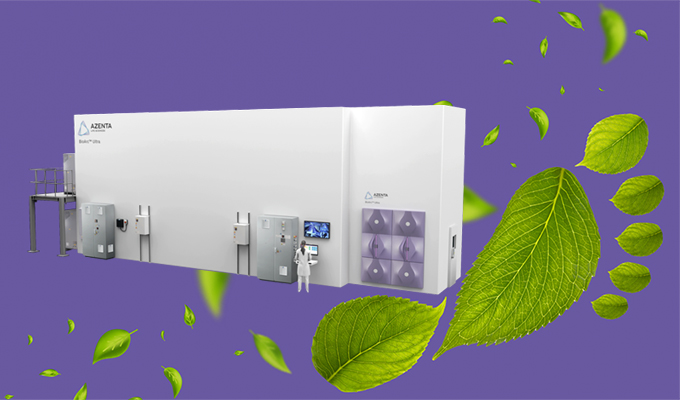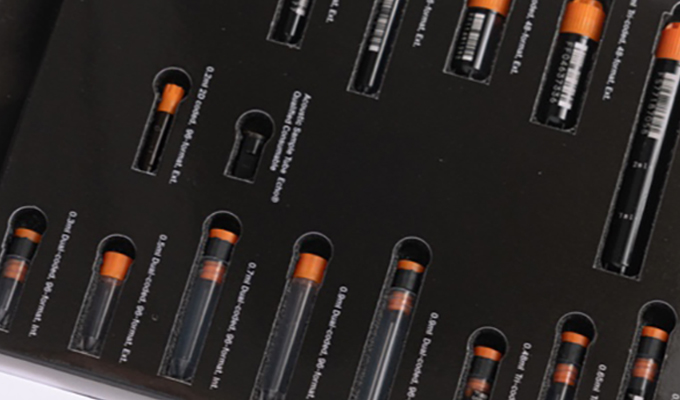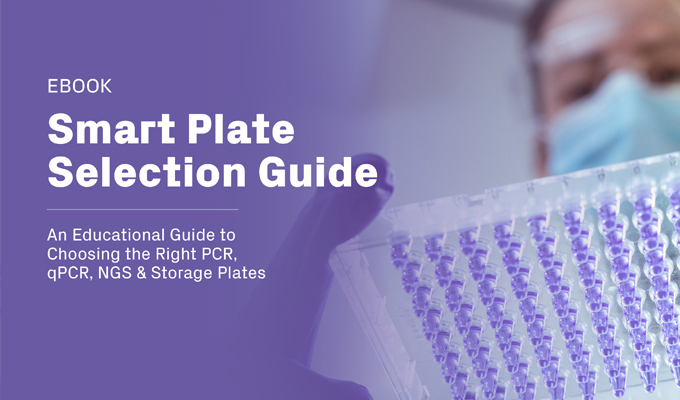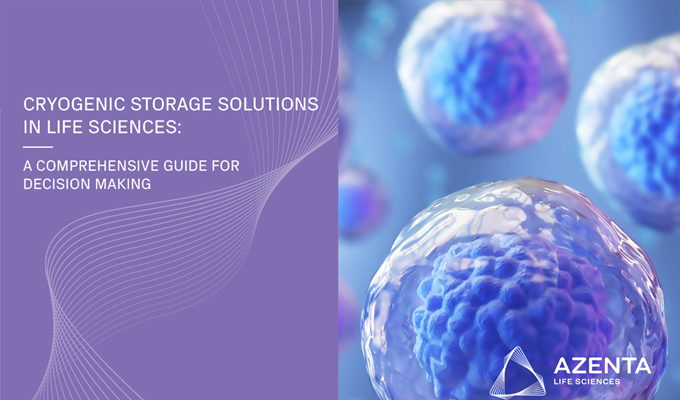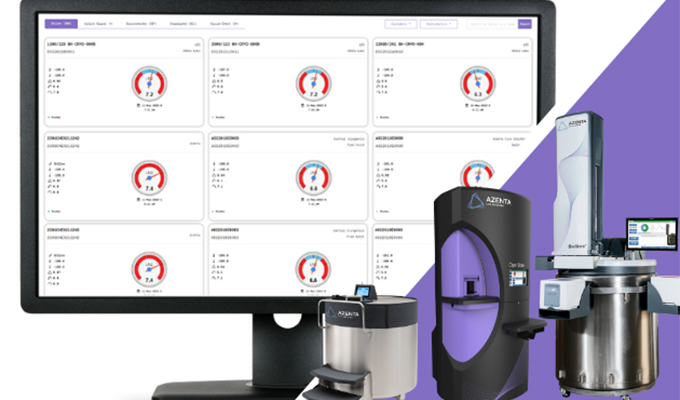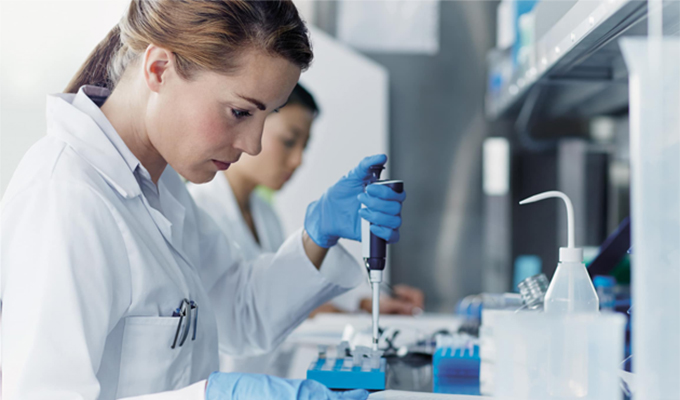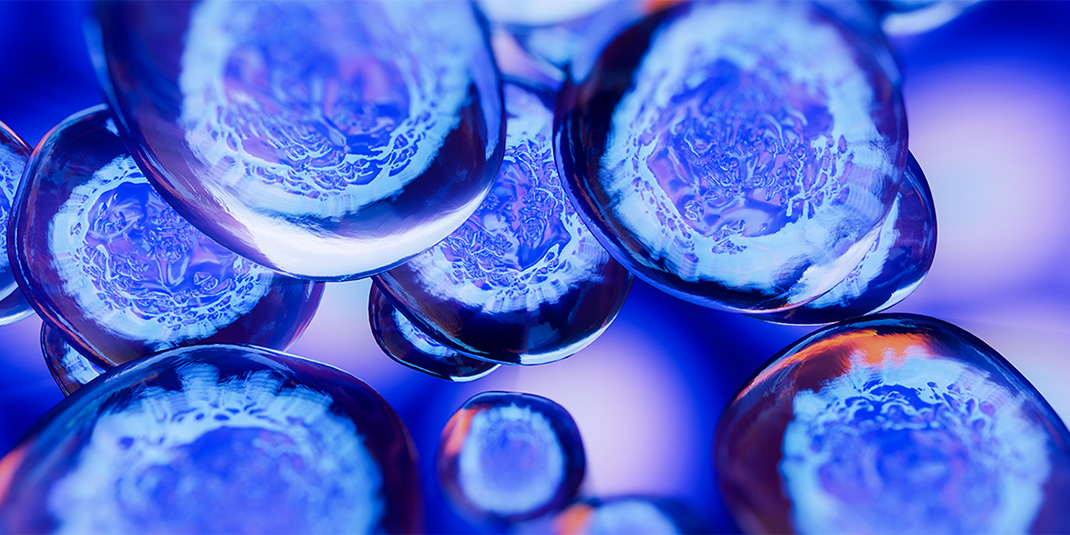Good storage practices of biological materials is an essential component of any laboratory. Biological samples often degrade over time when stored at room temperature, but some samples may also lose integrity at low temperatures if subjected to multiple freeze-thaw cycles. The best storage temperature for a given biological sample or reagent often varies depending on the type of biological material, the solution it is suspended in, the sample’s intended use, and how long the material will be stored. The most common storage temperatures are bench top/room temperature, refrigerated, freezer, ultra-lowfreezer, and cryogenic freezer storage.
Room Temperature Storage (15ºC to 27ºC)
Biological materials that have fixed with a preservative such as Bouin’s, formalin or alcohol, such as paraffin embedded tissues or biological specimens, can typically be stored at room temperature in a climate controlled building. While room temperature storage is typically not ideal for samples from which molecular data is desired, it is sometimes possible to obtain DNA results from preserved or dried tissues that have been kept at ambient temperatures. However, the DNA in these tissues is often highly degraded, and only short read lengths are obtained. RNA degrades rapidly at room temperature and typically cannot be isolated from tissues that have not been kept in freezer storage.
Refrigerated Storage (2ºC to 5ºC)
While typically a poor option for long-term storage, refrigerated temperatures are optimal for short-term storage of frequently used biological reagents, such as enzymes and antibodies. These reagents will quickly lose integrity if repeatedly frozen and thawed during routine experimental use and typically will remain viable at refrigerated temperatures when used within manufacturer recommended timeframes. Biological materials that will not be used in a short timeframe can be aliquoted and frozen until needed, reducing the number of freeze-thaw cycles they are subjected to.
Freezer Storage (-20ºC)
Many biological materials can be stored at standard freezer temperatures, preferably in appliances without frost free cycles (these cycles require brief periods of thaw to prevent frost accumulation and can degrade biological materials). -20ºC freezer storage is ideal for short-term storage of samples and reagents that are not stable at warmer temperatures. DNA and RNA can typically be obtained from tissues that have been suspended in appropriate solutions before freezing at -20ºC, though colder temperatures are recommended for long-term storage or for the storage of tissues or cells that are not suspended in a stabilizing solution.
Ultra-low Freezer Storage (-80ºC)
Ultra-low -80ºC freezers are a practical option for long-term storage of biological materials. Ultra-low temperatures prevent the degradation of nucleic acids, proteins, endocrine molecules, and many other biological molecules. These temperatures have been shown to maintain the viability of numerous biological assays and reagents through long-term storage. When samples are stored at ultra-low temperatures, it is important to consider freeze-thaw protocols. Cells typically preserve best when frozen slowly (about 1ºC a minute), but thawed quickly (such as in a water bath).
Cryogenic Freezer Storage (-150ºC to -190ºC)
Cryogenic freezer storage is often deemed the gold standard for long-term storage of biological samples. At these extremely low temperatures all biological activity is suspended and no degradation occurs. Cryogenic freezing is ideal for sensitive samples and specimens which cannot be suspended in a preservative. Like ultra-low temperature freezing, it is important to consider freezing and thawing protocols when utilizing cryogenic freezer storage.
Many variables go into making ideal storage temperature decisions for biological materials. For reagents and biological assays, it is often best to follow manufacturer recommendations for both short-term and long-term storage temperatures. When storing precious samples, it is important to consider the sample’s molecular structure, the preservatives or solutions it is suspended with, and the degree of biological integrity required for future analytical or research goals. A consultation with a biological storage expert can offer peace of mind for your irreplaceable samples.
Find the right sample storage solution for you!
